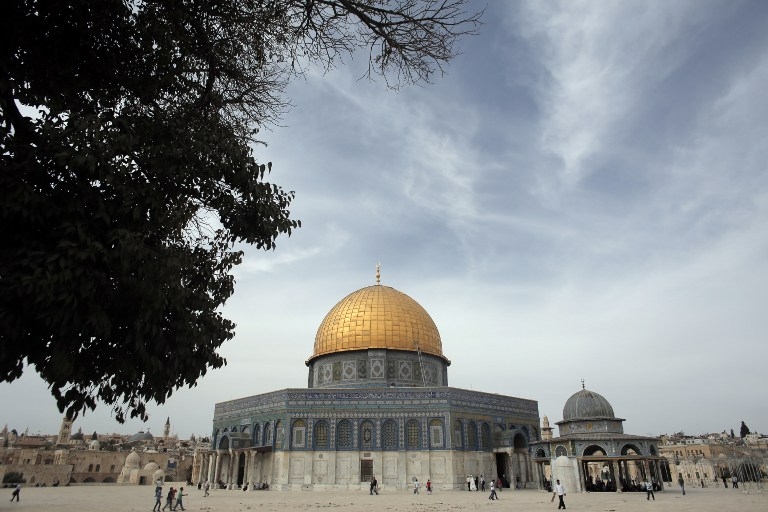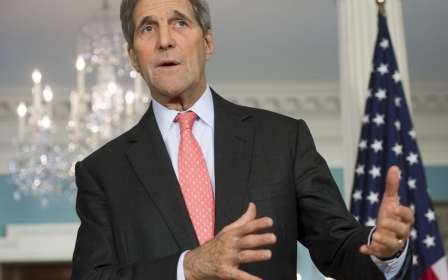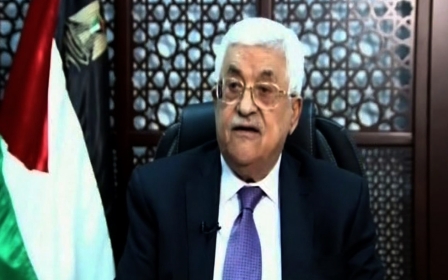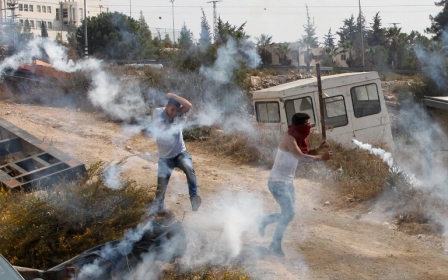Israel and Jordan working to ease holy site tensions, says Kerry

US Secretary of State John Kerry said Saturday that Israel and Jordan have agreed on steps aimed at reducing tensions at a holy site in Jerusalem amid weeks of Israeli-Palestinian violence.
"All the violence and the incitement to violence must stop. Leaders must lead," Kerry told reporters in the Jordanian capital after meeting with King Abdullah II and Palestinian leader Mahmoud Abbas.
The top US diplomat said the steps include round-the-clock video monitoring, while Israel is expected to reaffirm Jordan's special and historic role as custodian of what is known to Jews as the Temple Mount and to Muslims as the Al-Aqsa Mosque compound.
While Israel has pledged to maintain the rules of worship at the site, Israeli and Jordanian authorities will meet about bolstering security, Kerry said.
Outlining a series of understandings, Kerry said Israel "fully respects" Jordan's "special role" as custodian of the site.
He added that Israel will continue to enforce its policy of religious worship allowing Muslims to pray there and non-Muslims to visit.
Kerry also added that Israel has no intention of dividing the site and rejects any attempt to suggest otherwise.
Finally, Kerry said that Israel welcomes increased coordination between Israeli and Jordanian authorities to ensure that visitors and worshippers "demonstrate respect and restraint".
Ideas to difuse the situation were raised in a Berlin meeting between Kerry and Israeli Prime Minister Benjamin Netanyahu on Thursday.
Following his meeting with Netanyahu, Kerry said he was cautiously optimistic about calming the situation, adding that he would like to see clarity in the rules governing access to the Jerusalem holy site at the centre of the tensions.
Over the past five weeks, at least 49 Palestinians have been killed by Israelis, while 10 Israelis have been killed in Palestinian attacks.
The talks came after Israel on Friday lifted restrictions on Muslim worshippers in a bid to ease tensions.
Israeli authorities had barred younger Muslim men from entering the compound on Fridays, the main day of prayer in the Muslim religious week.
The bans had fueled Palestinian fears that Israel is trying to change an understanding under which Jews are allowed to visit, but not pray, at the holy site.
In the meantime, there had been a rise in visits to the holy compound by Jewish activists demanding prayer rights.
Israel has repeatedly denied Palestinian allegations that it is trying to change the status quo.
Palestinian leaders and activists said Israeli incursions at the compound ahead of the latest wave of violence, including shooting rubber bullets and tear gas at Palestinians in the mosque who police said were planning an attack, were unprecedented.
Middle East Eye propose une couverture et une analyse indépendantes et incomparables du Moyen-Orient, de l’Afrique du Nord et d’autres régions du monde. Pour en savoir plus sur la reprise de ce contenu et les frais qui s’appliquent, veuillez remplir ce formulaire [en anglais]. Pour en savoir plus sur MEE, cliquez ici [en anglais].




